How to properly store eggplants at home until winter
Eggplants are a common vegetable for us, especially in the summer season. However, these beneficial fruits for the body deserve not only seasonal, but also year-round use. To extend their useful life, various storage methods are practiced: from freezing to canning.
Features of eggplant storage
The pulp of these vegetables contains a lot of active water, so they do not stay fresh for long.
Reference. Active (unbound) water accelerates biochemical processes in food products and promotes the spread of molds and other microorganisms. To prevent food spoilage, storage methods are used that inhibit internal chemical reactions: drying, freezing, canning.
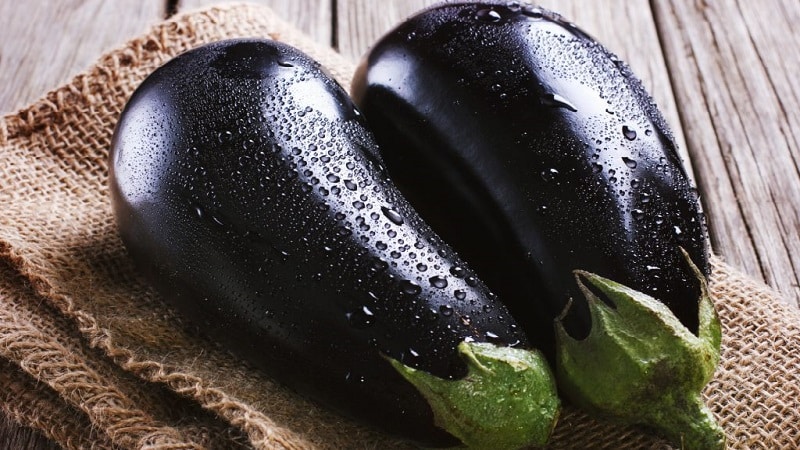
The success of preserving fresh vegetables at home depends on three parameters:
- air humidity;
- temperature;
- illumination
Optimal temperature conditions for eggplants - +2...+6°C.
Suitable air humidity - 75–85%. Higher rates increase the risk of rot, and with low humidity the fruits lose their juiciness and wrinkle.
Lack of lighting is a must for storing this member of the nightshade family. When exposed to light, berries produce solanine, which is hazardous to health.
How long do fresh eggplants last?
Processed and canned vegetables last the longest. Average shelf life of fresh eggplants depending on storage location:
- cellar (basement) - 3-4 months;
- balcony (cold storage room) - 1 month;
- refrigerator - up to 2 weeks;
- at room temperature - about a week.
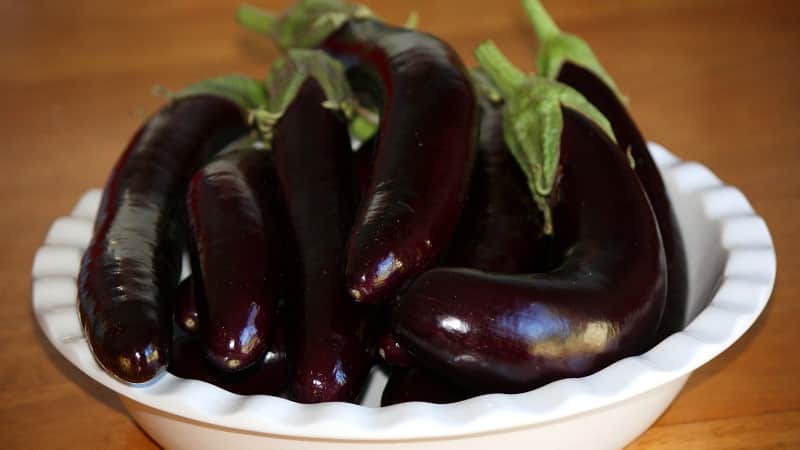
Which eggplants are suitable for long-term storage?
Fresh has the longest shelf life in late-ripening and mid-ripening varieties (for example, Torpeda, Romantika, Universal 6, Diamond).
To increase the period, harvest in a timely manner (not earlier and not later). and reject fruits based on shape and quality.
Fruit selection
High-quality eggplants - elastic with thick, glossy skin, without deformation, mechanical damage and signs of rot and insect damage. The color and shape of the collected vegetables must correspond to the varietal characteristics.
Important! Both unripe and overripe eggplants are not suitable for long-term fresh storage. Consider the timing of technical ripeness of plants: for mid- and late-ripening varieties it is 120–130 days from the date of sowing.
The maturity of eggplants is also determined by their appearance.. Overripe fruits, as a rule, have a matte skin, are lighter (as if faded), and have a soft structure. Unripe ones do not differ in color and size from ripe ones, but are noticeably lighter in weight.
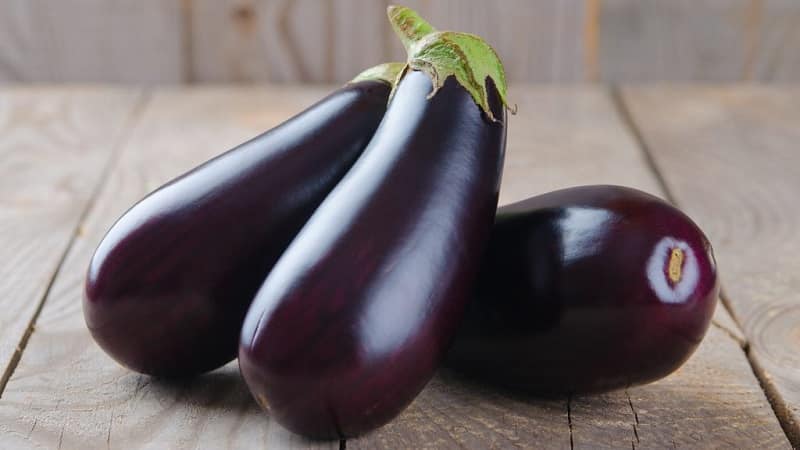
Preparing eggplants for storage
Vegetables are harvested in dry weather, but not in the very heat. Cut specimens suitable for ripeness, leaving stalks 3–5 cm long.
Before storing, cut eggplants are ventilated for 24 hours in the fresh air., protecting from direct sunlight (cover with burlap, put in the shade). A dark room with good ventilation is suitable for drying vegetables. If ventilation is not possible, wipe the fruits with a dry cloth.
Important! Eggplants intended for fresh storage should never be washed. Water removes the protective coating from the skin and reduces the natural biological immunity of vegetables.
How to store eggplants at home
When keeping unprocessed eggplants, the main goal is to preserve their beneficial properties, freshness, juiciness and texture.
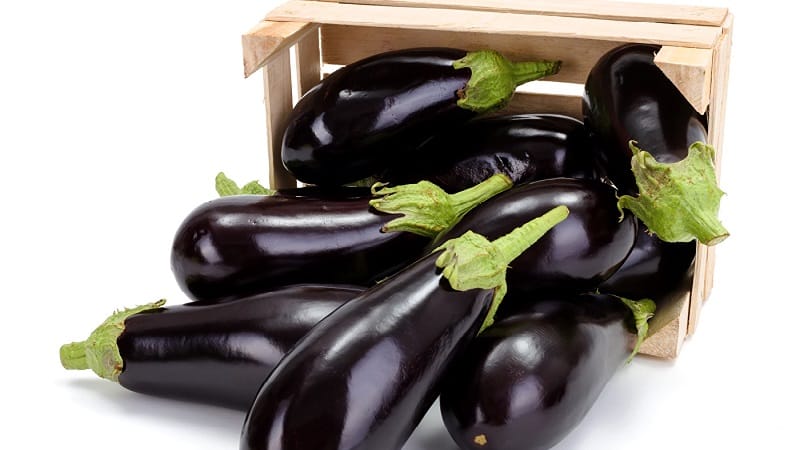
Cellar or basement
These places are most suitable for long-term storage of vegetables. Temperature, humidity, shading in the basement conditions are close to optimal. The main thing is that the indicators remain stable, without sudden changes.
The most popular storage methods in the cellar:
- laying in layers on the ground/floor/shelves (previously covered with straw);
- storage in boxes with holes;
- storage in hanging nets.
In the vegetable storehouse, air ventilation and insulation of fruits are provided. To do this, eggplants are wrapped in paper and laid in layers sprinkled with sawdust, ash or river sand.
Important! Do not forget to sort through vegetables from time to time, choosing spoiled ones, and monitor the microclimate in the room.
Balcony
On an insulated (glazed) balcony, fresh eggplants are kept in boxes. The bottom is covered with a thick bedding of straw, the vegetables laid in layers are covered with dry sand or ash. The boxes are covered with burlap on top to protect them from light and cold. When the air temperature drops below +2°C, vegetables are insulated by throwing on, for example, an old blanket or rug.
Fresh eggplants are stored on the balcony for about a month, depending on the weather.
Other methods
Other storage methods involve heat treatment, which increases the shelf life of products.. In such cases, early ripening varieties of eggplant are also used, and the requirements for the quality of the fruits themselves are reduced.
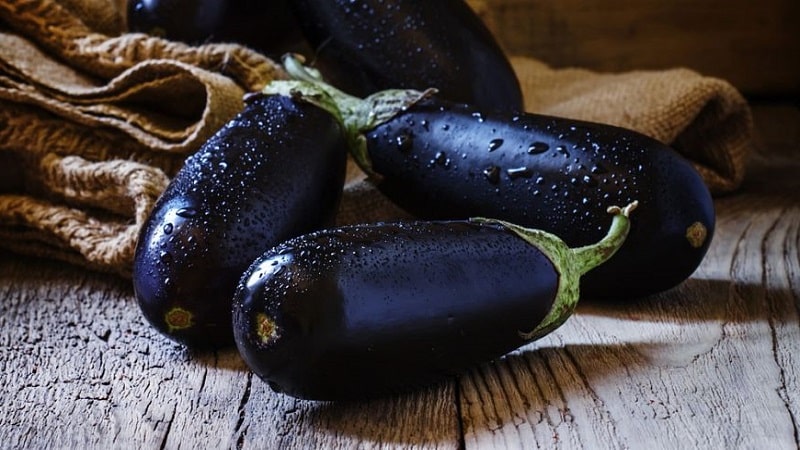
In the freezer
Freezing - economical storage method, especially for city residents who do not have a cellar or basement.
Important! Properly frozen vegetables preserve their vitamin and taste properties and save time when using them for food.
How to prepare eggplants for freezing:
- Washing, peeling and slicing - the fruits are cut into cubes, rings, slices, large pieces, and left whole.
- Soaking in salt water removes bitterness. The duration of the procedure is 0.5–1 hour, depending on the size of the pieces.
- Preliminary heat treatment prevents the quality and taste of the pulp from deteriorating.
The simplest heat treatment includes:
- blanching - boiling for 5 minutes in salted water;
- light baking in the oven or frying in a pan.
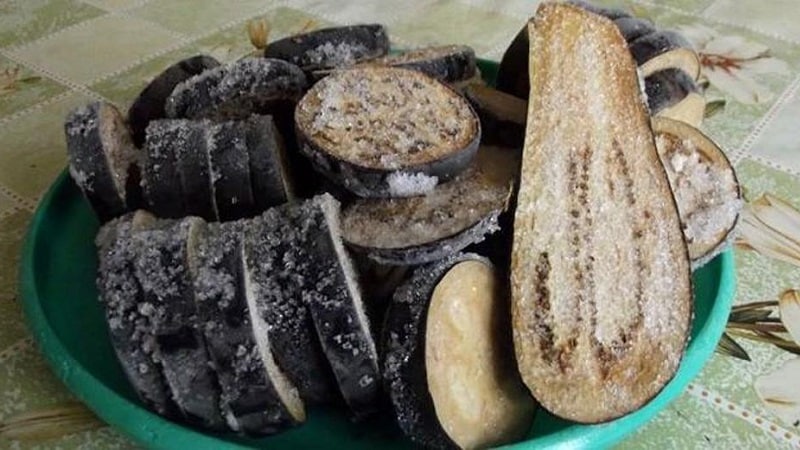
After heat treatment, lay the eggplants on a paper napkin to drain excess oil and cool.
It is better to freeze in portions so that the pieces do not stick together. To do this, the processed slices are laid out on a tray (board, baking sheet) in one layer and sent to the freezer.
After the pieces have frozen to the required hardness, they are poured into bags or containers, and the next portion of eggplants is placed on the tray.
Semi-finished products prepared in this way are stored in airtight containers for quite a long time., up to a year. In winter, they are used to prepare vegetable stews, appetizers, side dishes and other dishes.
Dried
Method for preserving vegetables dried does not imply the creation of special conditions. However, there is an opinion that dishes prepared from such eggplants do not taste good.
There are three ways to dry eggplants:
- in the oven;
- in an electric dryer;
- on open air.
In the first case, washed and chopped fruits are spread in a thin layer on a baking sheet (without oil) and placed in an oven preheated to +200°C. Drying is carried out at a temperature of +100°C for 5-6 hours with the door ajar.
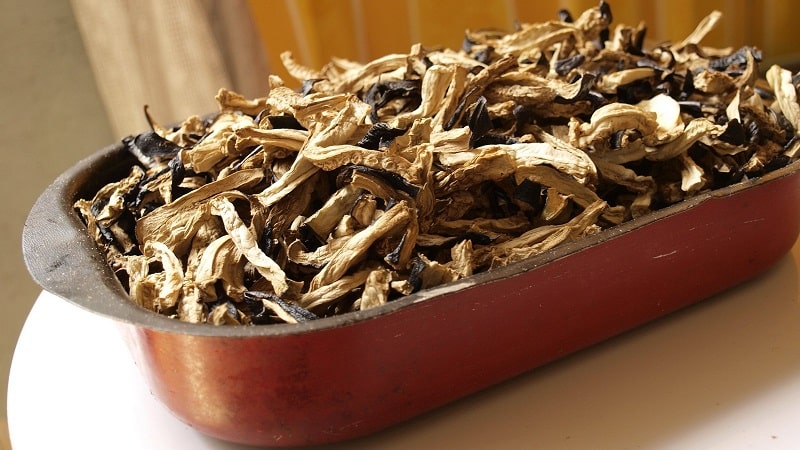
Conveniently dry vegetables in an electric dryer, where the appropriate mode and time are set (on average 7-8 hours).
The third method is the least reliable, since for a high-quality result dry weather is required throughout the entire period. Eggplants, cut into pieces 1.5–2 cm thick, are loosely strung on a thread or laid out in a thin layer on a flat surface. Dry them in a shaded, dry place with good ventilation for about 5–7 days.
The finished pieces are packaged in paper bags, fabric bags or other airtight containers and stored at room temperature. Such preparations are suitable for food for at least a year.
Reference. A type of dried vegetables is dried. To do this, the fruits are partially dehydrated, and the temperature and duration of drying are reduced. Such semi-finished products are stored in the refrigerator, in glass jars filled with vegetable oil.
Canned
The most common way to preserve crops is conservation. Eggplant salt, fermented, marinate, prepared in the form of salads or traditional eggplant caviar.
There are many recipes for cooking vegetables, especially in the national cuisines of southern countries. Below are some simple options.
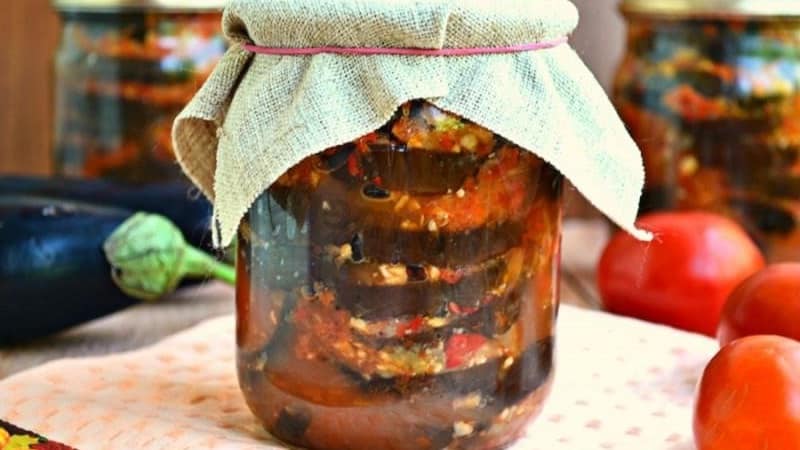
Salted eggplants
Place chopped fruits in an enamel pan (or other container for pickling), add chopped dill and garlic to taste, sprinkle with salt (at the rate of 2-3% relative to the weight of vegetables), and mix.
The workpiece matures under pressure for 2–4 days at room temperatureuntil the brine becomes cloudy. Store the finished pickles in a cool place (for example, a refrigerator). After a week, the eggplants are ready to eat.
Pickled eggplants
Whole fruits are cut lengthwise to 2/3 of the thickness and boiled in plenty of salted water for 10 minutes. Used in various combinations for filling grated carrots, chopped herbs, garlic, walnuts, etc. “minced meat” is generously added to the inside of each eggplant (in the cut).
The fruits are wrapped with threads so that they do not fall apart. The stuffed vegetables are placed in an enamel pan and completely filled with brine (1.5 liters of water, 80–90 g of salt). The fermentation is infused under pressure for several days, then transferred to a cool place for storage.
Eggplant appetizer with vegetables
Vegetables are cut into slices, add salt and fry in a frying pan. Fried eggplants are placed in sterilized jars in layers, alternating them with fresh peppers, tomatoes, carrots, onions, celery, parsley.
The layers are sprinkled with salt, pepper, and spices to taste. The mixture is poured with heated vegetable oil, the jars are sterilized in the usual way. The preparations are stored at room temperature.
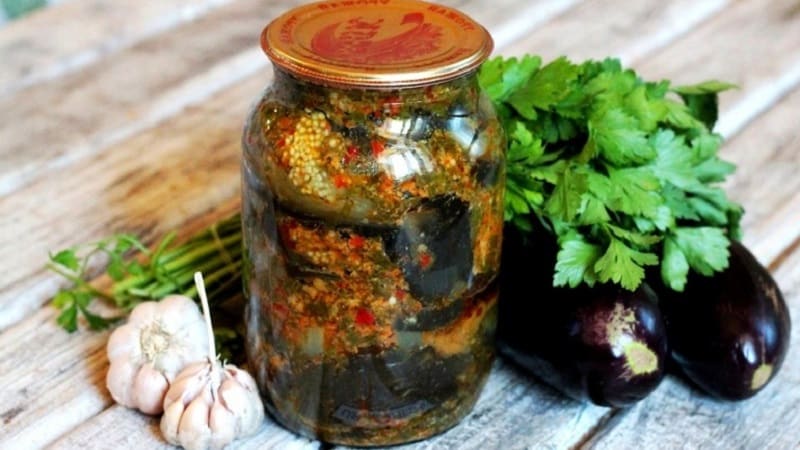
Useful tips
For successful storage of fresh eggplants at home:
- vegetables are provided with suitable conditions: a cool, dark place with constant humidity of about 80%;
- use ventilated boxes with holes or baskets: vegetables deteriorate rapidly in closed, tight containers;
- isolate fresh fruits from each other and from the external environment (the best solution is bags made of thick paper: they are gas-permeable and provide the necessary darkening, protect vegetables from drying out and rotting);
- limit the contact of eggplants with other vegetables and fruits that produce ethylene during ripening (tomatoes, bananas, apricots, plums, pears).
Conclusion
Fresh and canned eggplants are sold in stores all year round, but many people prefer vegetables grown in their own summer cottages. They are consumed both fresh and processed. This enriches the diet with healthy foods not only in summer, but also in winter.
For better storage of fruits, optimal conditions are created for them: air humidity, temperature, and the absence of direct sunlight are monitored. Vegetables are best preserved in a basement or cellar, but they can be successfully frozen, dried, dried, and canned.